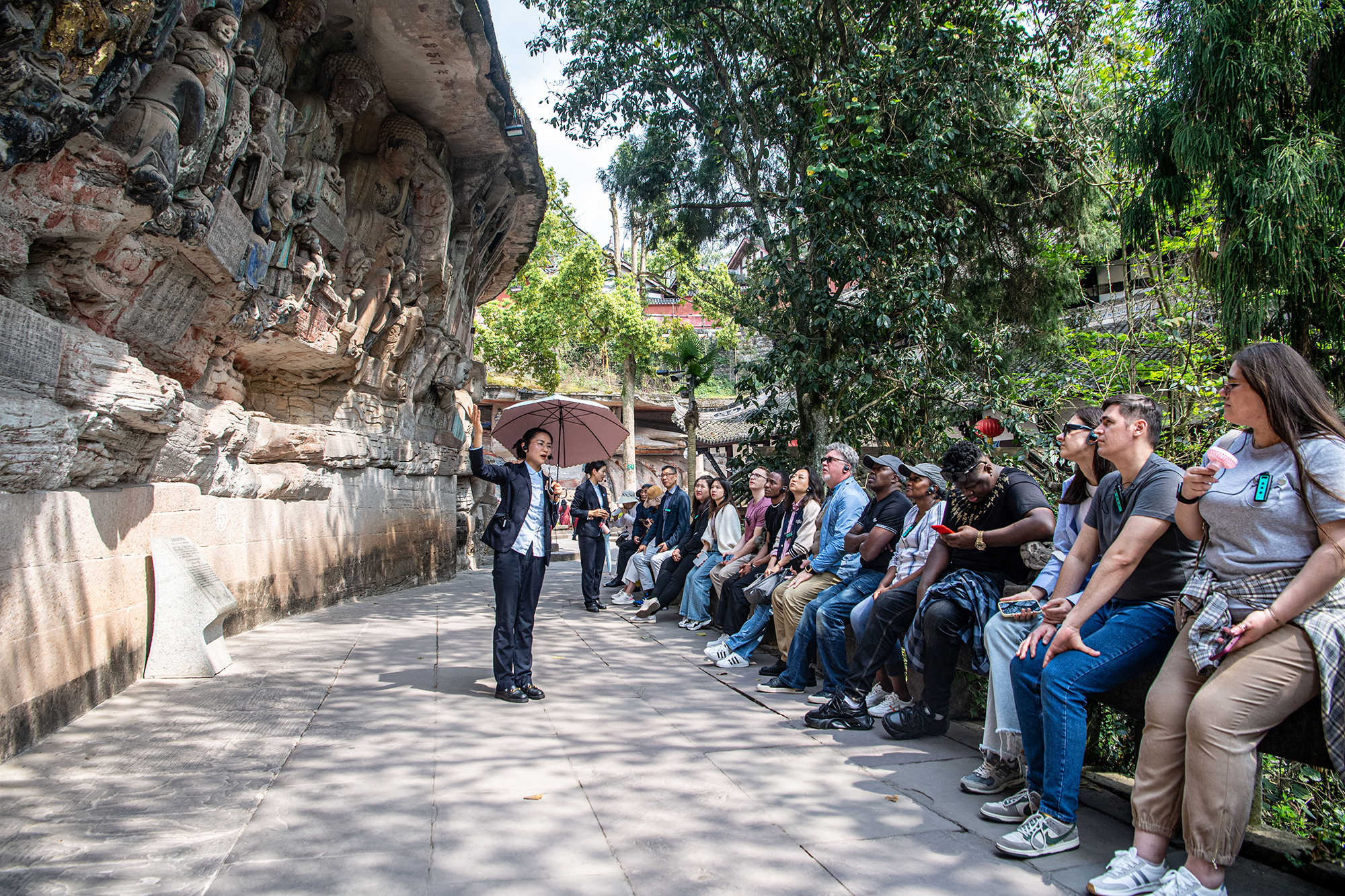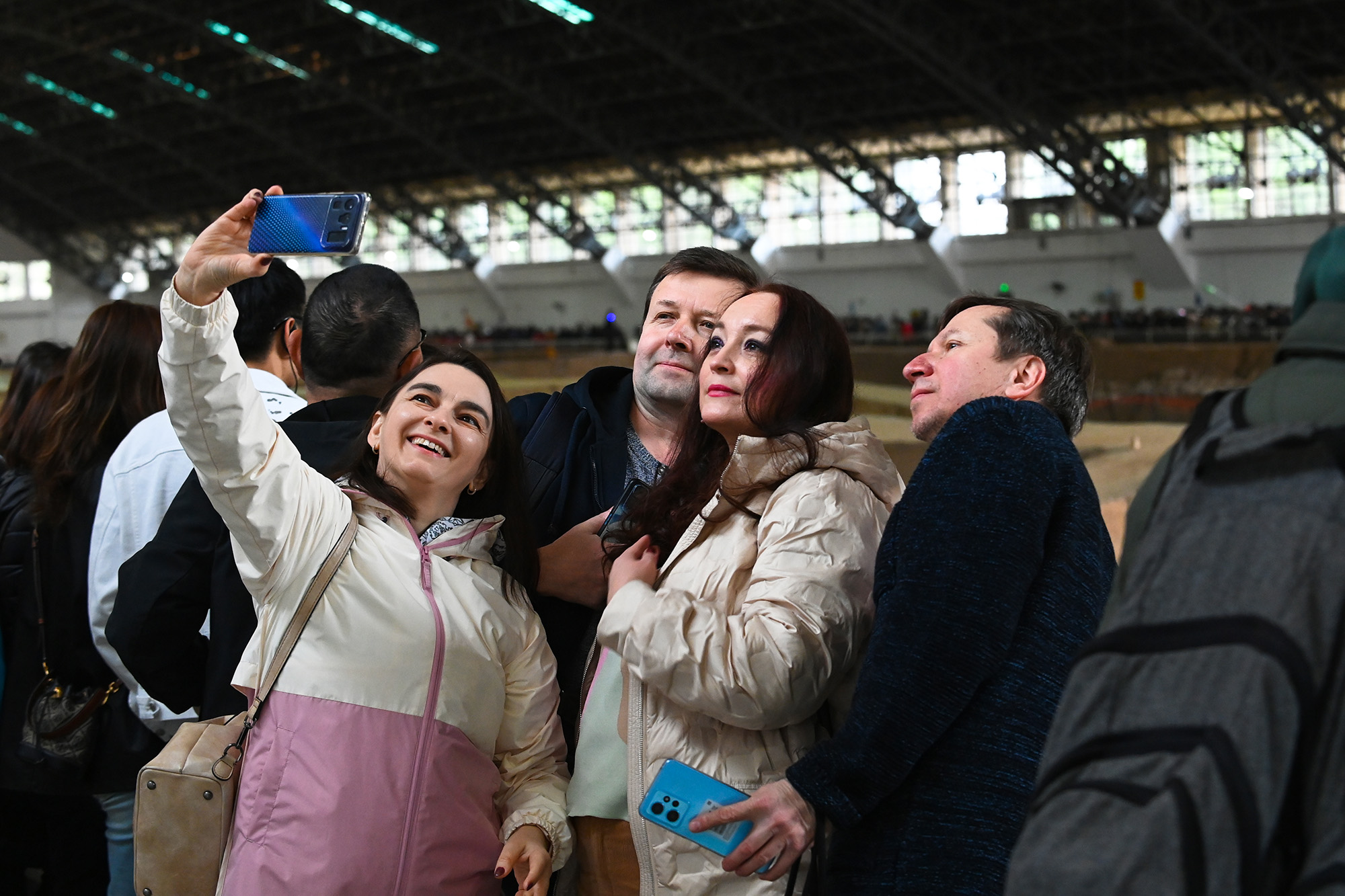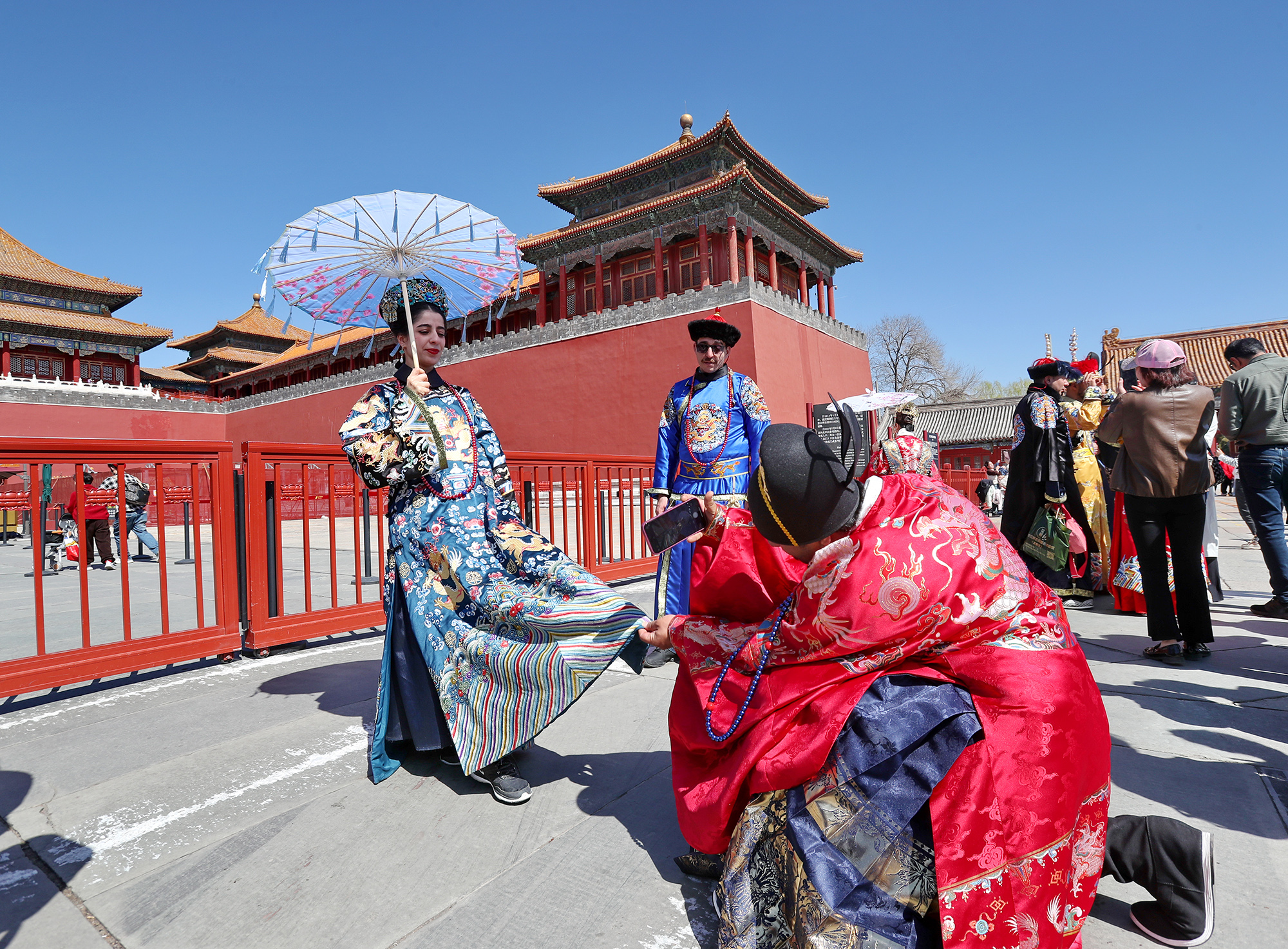Insider bullish on intl tourism rebound with streamlined payment, visa-free entry

British travel vloggers the Hutchinsons said China "shocked" them, after embarking on a three-month tour of the country.
The family, which has 52,000 subscribers on YouTube, made their first stop on their inaugural trip to China in Guangzhou, capital of the southern province of Guangdong, in mid-March.
In their videos, they've explored cities including Guangzhou, Foshan and Xiamen in Fujian province and tasted some authentic Chinese food. They evaluated the cities as being "safe, beautiful and amazing", and have learned to use some online payment tools such as WeChat Pay.
"When visiting China, you'll realize that cashless pay is a part of everyday life, from local fruit stores to bars, restaurants, cafes and shops. Everybody uses it, and it provides smooth and convenient transactions for your day, including shopping, dining, ordering takeouts, or even transport," said Chris Hutchinson, father of the family, in one of the videos.
China's inbound tourism has steadily recovered in recent months after the central government stepped up efforts to optimize entry policies from the end of last year.

The nation started a visa-free policy for six countries, including France, Germany and Italy, from Dec 1 to Nov 30 this year, with people from these countries allowed to stay on the mainland for up to 15 days for business, tourism, family trips or transit without a visa.
The visa-free policy was extended to another six countries: Switzerland, Ireland, Hungary, Austria, Belgium and Luxembourg, from March 14 to Nov 30 to further boost inbound tourism.
According to the National Immigration Administration, the mainland saw about 2.95 million inbound and outbound visits by international travelers from January to February. The number is 2.3 times higher than the previous two months, and about 41.5 percent of the level before the COVID-19 pandemic.
Sanya, a tropical spot in the southern province of Hainan, had 64,000 international travelers spend nights there in January, a year-on-year increase of 329 percent, according to China Central Television.
Zhangjiajie in Hunan province, whose scenery is often said to have inspired the movie Avatar, received 98,462 visits by international travelers from January to Feb 27, a figure 34 times higher than the same period last year, CCTV said.

Ngoc Pho Chau Cao, a 25-year-old Vietnamese woman living in Germany, said her travels in China have been amazing so far. She arrived at the University of International Business and Economics in Beijing on Jan 29 for an exchange program and will stay on the mainland until mid-July.
She has traveled to Tianjin, Harbin in the northeastern province of Heilongjiang, and Datong in the northern province of Shanxi. She has a long travel list for her stay over the next few months.
"So far, I like Beijing the most. The buildings are beautiful and impressive, and people here are more open to each other. I wanted to visit the Palace Museum, but the tickets were always sold out. People in China love to advertise and market Chinese culture to the world."
She said she had some problems at the very beginning in terms of language, traffic and online payment, but got help from other international students and learned to get used to life in China. "I sent pictures to my friends and they said 'China is so cool'. I'd like to introduce China to my friends after I finish my trip to the country."
To improve the travel experience for international tourists, the central government has released some guidelines to optimize online payments, tour products and accommodation bookings in recent months. Tourism industry insiders and experts are optimistic about China's inbound tourism development thanks to these policies and measures.

The Ministry of Culture and Tourism is also working with other departments and online payment platforms to streamline e-payment verification procedures for international travelers.
Yang Jinsong, director of the International Institute at the China Tourism Academy, said though the inbound tourism market has improved, it still needs time to see sustainable growth.
"International travelers prefer early trip planning rather than taking impromptu trips. The government has done much work to facilitate international travelers with visas and payment, but more promotions and advertisements can be done to attract travelers from around the world.
"I'm bullish on the market as our country is more open to the world, and we will organize more international cultural and tourism events this year. The cost for visas and flights will also be lowered," he said.
He added that talent is key to boosting inbound tourism. "Many tourism workers, especially tour guides speaking foreign languages, transferred to other industries in the past few years due to the pandemic. We need to channel more resources to train talent and give them better career prospects."


